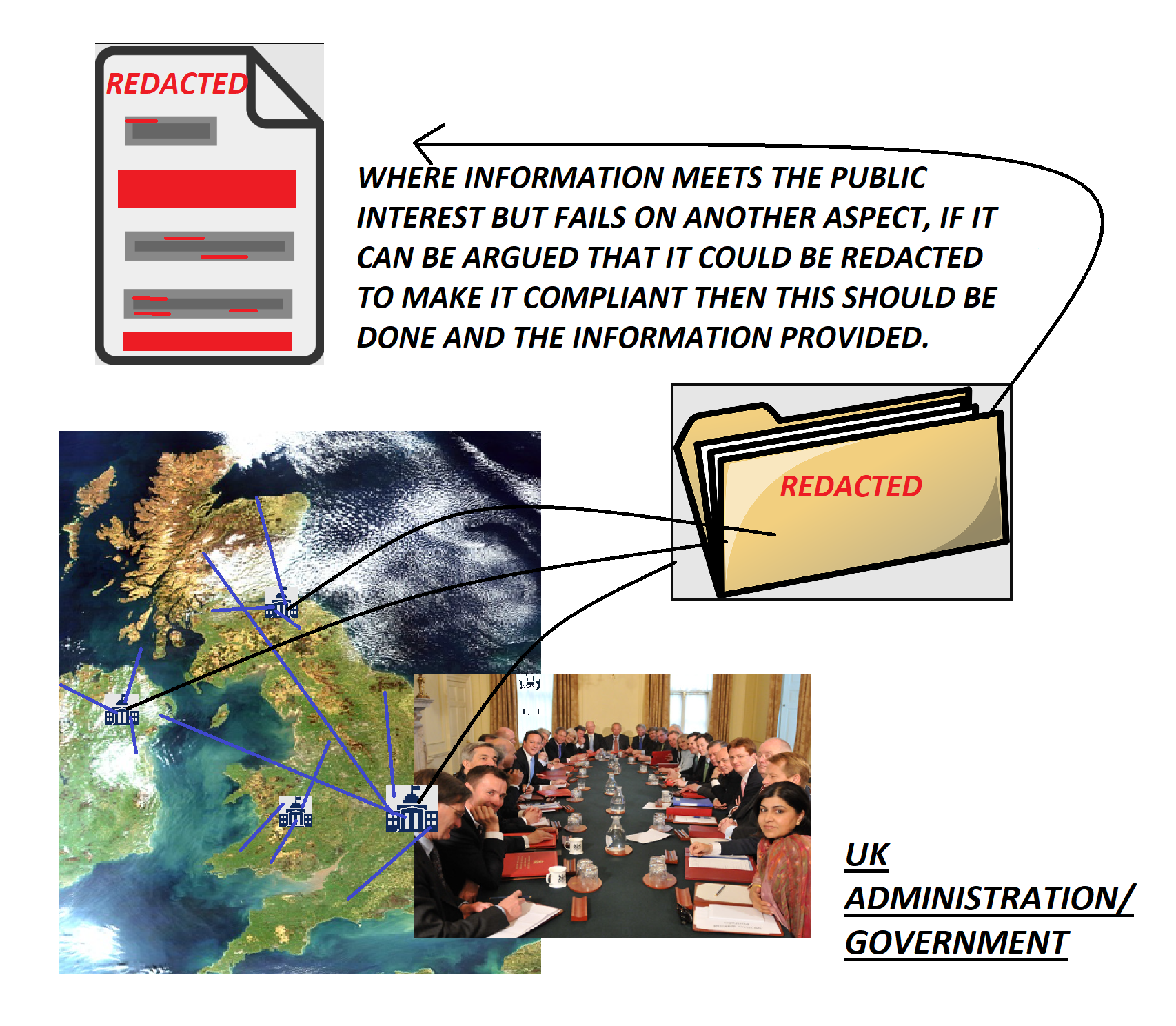Director of Public Prosecutions v Kilbourne [1973] AC 729, 756
Citation:Director of Public Prosecutions v Kilbourne [1973] AC 729, 756
Link to case on Canada University.
Rule of thumb:What is meant by the test of public interest? It means that a law may have been breached. If a person can argue that the information may show that a law has been breached then they can obtain the information, even if it is in a redacted form.
Judgment:
A public authority can always apply to the Court that certain parts of information should not be disclosed on the basis that it is not in the public interest, but there is no absolute privilege to stop it from being released in its entirety if it necessary for the administration of justice in the case at hand. In short, if the only damage would be to the integrity of the people involved and the efficacy of the department, but with no actual clear damage to the running of the public services, then this is not a ground for having the information refused.

Ratio-decidendi:
‘The ground put forward has been said to be Crown privilege. I think that that expression is wrong and may be misleading. There is no question of any privilege in the ordinary sense of the word. The real question is whether the public interest requires that the letter shall not be produced and whether that public interest is so strong as to override the ordinary right and interest of a litigant that he shall be able to lay before a court of justice all relevant evidence. A Minister of the Crown is always an appropriate and often the most appropriate person to assert this public interest, and the evidence or advice which he gives to the court is always valuable and may sometimes be indispensable. But, in my view, it must always be open to any person interested to raise the question and there may be cases where the trial judge should himself raise the question if no one else has done so’. At 400, Lord Reid
Warning: This is not professional legal advice. This is not professional legal education advice. Please obtain professional guidance before embarking on any legal course of action. This is just an interpretation of a Judgment by persons of legal insight & varying levels of legal specialism, experience & expertise. Please read the Judgment yourself and form your own interpretation of it with professional assistance.

